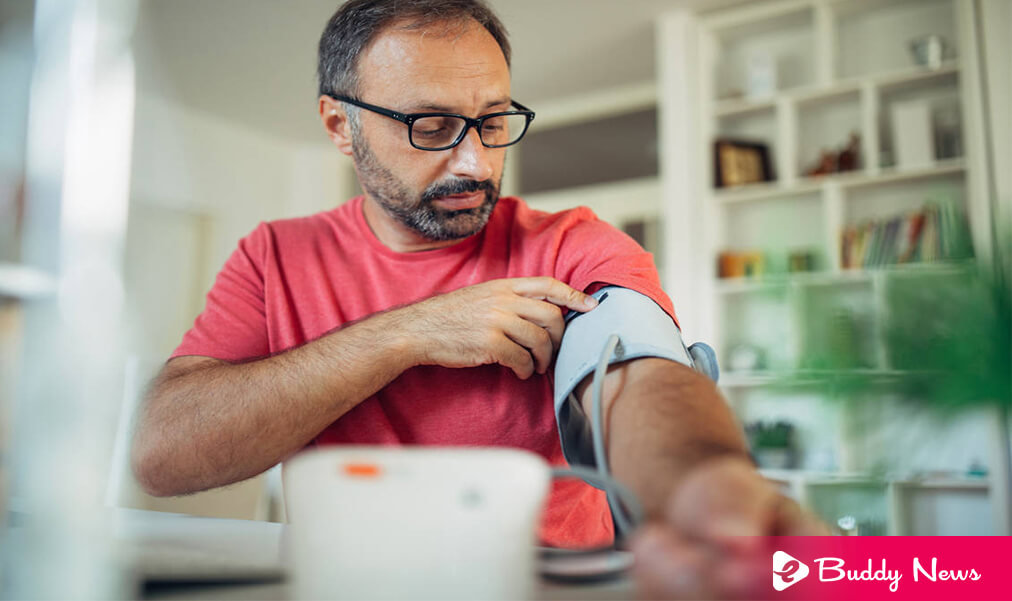What Are The Tips To Control Your High Blood Pressure Without Medication?

If you have been diagnosed with high blood pressure, you may be worried about taking medication to lower it. Lifestyle plays a crucial role in controlling high blood pressure. Suppose you successfully control your blood pressure through healthy lifestyle tips without medication. In that case, you may be able to avoid, delay or reduce the need to take medication. Here are six lifestyle tips to control your high blood pressure without medication.
Tips To Control Your High Blood Pressure Without Medication
1. Lose Weight And Take Care Of The Waist
Blood pressure often increases with weight gain. Being overweight can also lead to sleep-disordered breathing (sleep apnea), increasing blood pressure.
Losing weight is one of the most effective lifestyle tips to control blood pressure without medication. If you’re overweight or obese, losing even a small amount of weight can help lower your blood pressure. You can normally lower your blood pressure by about 1 millimeter of mercury (mm Hg) with every kilogram, i.e., about 2.2 pounds of weight you lose.
In addition to losing pounds, you also need to control the diameter of your waist. Having a lot of weight around your waist can put you at a higher risk for high blood pressure.
Usually:
- Men are at risk if their waist measurements exceed 40 inches (102 centimeters).
- Women are at risk if their waist measurements exceed 35 inches (89 centimeters).
These figures vary according to ethnic groups. Ask your doctor what a healthy measurement for your waist would be.
2. Exercise Regularly
Regular physical activity can lower blood pressure by about 5 mm Hg and 8 mm Hg if you have high blood pressure. It’s important to be consistent because your blood pressure can rise again if you don’t exercise.
If you’ve high blood pressure, exercise can help prevent it from turning into hypertension. Regular physical activity can lower blood pressure to safer levels if you already have high blood pressure.
Some aerobic exercises examples you can try to lower your blood pressure include: walking, jogging, bicycling, swimming, or dancing. You can also try high-intensity interval training, short alternating periods of intense activity with subsequent recovery periods of lighter activity.
Muscle strengthening can also help lower blood pressure. Try to include muscle-strengthening exercises at least two days a week. Make a time to speak with your doctor about an exercise program development.
3. Reduce Sodium Intake In Your Diet
Even a small sodium reduction in your diet can improve your heart health and lower your blood pressure from approx 5 mm Hg to 6 mm Hg if you have high blood pressure.
The result of sodium intake on blood pressure varies from one group of people to another. But a lower sodium intake (1,500 mg daily or less) is ideal for most adults. Limit sodium to 2,300 mg daily or less.
To reduce the sodium’s amount in your diet, consider the following tips:
Read Food Labels
If possible, choose low-sodium alternatives to the foods and drinks you normally buy.
Eat Fewer Processed Foods
Only a small amount of sodium is naturally present in foods. During the processing, most of the sodium is added.
Don’t Add Salt
Don’t add salt too much because just 1 level teaspoon contains 2,300 mg of sodium. Try to use herbs or spices to add flavor to your food.
Gradually Progress
If you think you can’t drastically and suddenly reduce the amount of sodium in your diet, reduce it progressively. Your palate will adapt over time.
4. Control The Limit The Amount Of Alcohol You Drink
Alcohol is possibly good and bad for your health at the same time. Suppose you drink alcohol only in moderation, usually one drink per day for women or two per day for men. In that case, you can potentially lower your blood pressure by about 4 mm Hg. One drink is equal to 12 ounces (355 ml) of beer, 5 ounces (148 ml) of wine, or 1.5 ounces (44 ml) of 80-proof liquor.
However, that defensive effect is lost if you drink excessive alcohol.
Drinking more than an average amount of alcohol can increase your blood pressure by several points. It can also decrease the blood pressure medications effectiveness.
5. Quit Smoking
Each cigarette you smoke lowers your blood pressure for several minutes after you finish it. Quitting smoking helps your blood pressure back to normal. Quitting smoking can lower your risk of heart disease and improve overall health. People who quit smoking early may live longer than those who never quit.
6. Reduce Stress
Chronic stress is also one of the reasons for high blood pressure. Occasional stress can also give to high blood pressure if your stress reaction is eating unhealthy foods, drinking alcohol, or smoking. More research is needed to resolve the effects of chronic stress on blood pressure.
Take some time to consider what situations make you feel stressed, such as work, family, finances, or illness. If you know the cause of your stress, think about how you could eliminate or reduce it.
Last Words
Getting help from your family and friends will help improve your health. They may encourage you to take care of yourself, take you to the doctor’s office, or join an exercise program to keep your blood pressure down.
Consider joining a support group if you want support beyond your family and friends. You may meet people who can give you an emotional or moral boost or who can offer practical advice for coping with your condition.














